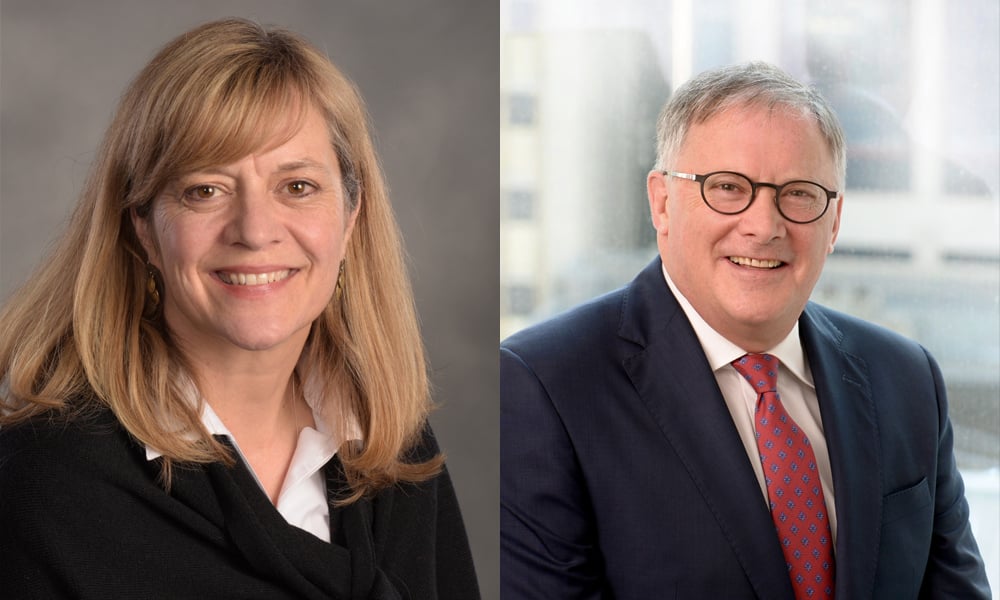
Cheryl Foy and Ken Fredeen call on in-house lawyers to submit their ethical dilemmas anonymously

You face professional and ethical challenges every day. What do you do when:
Sharing our experiences can help.
We’re offering this column to support you as you tackle ethical and professional issues. In turn, we’re hoping that your issues and our answers will help us all learn.
Much is expected of in-house lawyers
It’s the age of the chief legal officer, a time when in-house lawyers are expected to be much more than legal advisors. The Association of Corporate Counsel notes in its 2019 Chief Legal Officer Survey that the drivers of this era are “the pace of change in regulation, globalization, technology, and the growing expectation that organizations address environmental, social, and governance issues. These challenges have elevated the importance of ethics, compliance, and corporate culture within an organization. Organizational health depends on strong governance and leadership in ethics and compliance to insulate the business from threats that CEOs and boards simply cannot predict.” In-house counsel are expected to be leaders in organizational health, compliance, risk and reputation management.
The FLSC Model Code of Professional Conduct says that in-house lawyers “are often in a position to advise the executive officers of the organization, not only about the technicalities of the law, but also about the public relations and public policy concerns that motivated the government or regulator to enact the law [and] . . . may guide organizations to act in ways that are legal, ethical, reputable and consistent with the organization’s responsibilities to its constituents and to the public.”
Mark Cohen, CEO and founder of Legal Mosaic, a legal business consultancy, takes it further. “Conscience is also an important component of the GC role,” he says. “Championing diversity, encouraging the enterprise to act ethically and responsibly, adherence to the law and high ethical standards . . . and defending democracy and the institutions supporting it are all important aspects of the general counsel's role as the standard bearer for the corporate conscience.”
Serious consequences
In-house counsel who fail to address illegal behaviour face serious professional and reputational consequences. Law.com reported in June 2019 that Walmart in-house counsel played a key role in both executing foreign bribery scandals and in exposing them. Lawyers for General Motors were implicated in covering up faulty ignition switches in GM cars. As a Harvard law article notes: “The prevailing belief among many GM employees was that the legal department discouraged employees from raising concerns. . . . Most concerning, the report found that the legal department ignored its own directives regarding the communication of serious issues to department superiors — an oversight that undoubtedly contributed to the company’s delayed response to the crisis.”
However, in-house lawyers also face difficult decisions and consequences when they decide to address illegal behaviour head on. Once they identify illegal behaviour, in-house lawyers have an obligation to escalate to ensure the behaviour is addressed. Ultimately, an in-house lawyer may have to resign in the face of an organization’s continued illegal behaviour. All of this is very difficult to do in the context of environments that value collegiality and teamwork. It’s very difficult to be the person in the room raising concerns. It can be very lonely.
By sharing our experiences, we can learn to overcome concerns and address our ethical issues head on. Go to canadianlawyermag.com/inhouse/ethics to submit your question anonymously.
Cheryl Foy is university secretary and general counsel at Ontario Tech University. She provides strategic and tactical advice on matters of governance, jurisdiction, policy and process to all members of the university community.
Ken Fredeen is general counsel with Deloitte, a member of the leadership team and teaches on the role of the general counsel at the CCCA/Rotmans In House Counsel Certification Program. In 2018, he was recognized as Canada’s Outstanding General Counsel.